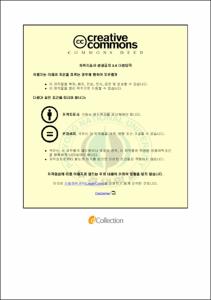한국어 화자의 영어 의문문 처리에 관한 심리 언어학적 연구
- Abstract
- Human languages differ in the amount of word order flexibility they permit. Some languages, including English, have fairly rigid word order. If the word order of an English sentence is changed, the meaning of the sentence also changes. This is a consequence of English using word order to encode the grammatical relations between words, which help to constrain thematic role assignments. However, many other languages, such as Finnish, German, Russian, Japanese and Korean, encode these grammatical relations not by means of word order, but by case marking on the nouns. The existence of word order flexibility raises questions about the relations between the different word orders that are possible in a language. On an intuitive level, native speakers often feel that one of the orders is the basic, while the other orders are perceived to be somehow more unusual. It means those speakers can have "biases" to prefer some specific word order as a basic one.
This thesis explores a psycholinguistic approach to process English wh-questions for Korean speakers. There is a hypothesis that Korean speakers have difficulty in processing English Object wh-Question rather than English Subject wh-Question. And it is expected because of different word order that English and Korean have.
In this thesis, I suggested two assumptions. First, there exists psychological reality to have difficulty in processing English Object wh-question for Korean speakers. Second, Korean speakers have biases to prefer a canonical word order(SOV, SVO), not scrambled one(OSV). If there is an order preference for Subject-first sentence, then the preferred order should produce shorter reading times than the non-preferred one on the assumption that the preferred one requires less parsing effort than the non-preferred one.
To test these predictions, I measured the reading times for Subject-first sentence and Object-first sentence in Korean and Subject and Object wh-Question in English by doing on-line real time tasks. In conclusion, Korean speakers have a bias to prefer a canonical word order, Subject-first one. And this caused Korean speakers to have difficulty in processing English Object wh-Questions.
- Issued Date
- 2012
- Awarded Date
- 2012. 8
- Type
- Dissertation
- Publisher
- 부경대학교
- Affiliation
- 부경대학교 대학원
- Department
- 대학원 영어영문학과
- Advisor
- 박순혁
- Table Of Contents
- 목 차
영문초록 ⅲ
1. 서 론 1
1.1 연구의 필요성 및 목적 1
1.2 연구의 구성 2
2. 이론적 배경 4
2.1 한국어와 영어의 기본 어순 4
2.2 어순에 대한 선입관(biases) 7
2.3 선행 연구 9
3. 연구 방법 14
3.1 실시간 읽기 실험 14
3.2 번역 설문 21
4. 실험 결과 분석 및 논의 23
4.1 실험 1 23
4.2 실험 2 25
4.3 실험 3 26
4.4 번역 시험 36
V. 결 론 39
참고 문헌 41
- Degree
- Master
- Files in This Item:
-
-
Download
 한국어 화자의 영어 의문문 처리에 관한 심리 언어학적 연구.pdf
기타 데이터 / 851.25 kB / Adobe PDF
한국어 화자의 영어 의문문 처리에 관한 심리 언어학적 연구.pdf
기타 데이터 / 851.25 kB / Adobe PDF
-
Items in Repository are protected by copyright, with all rights reserved, unless otherwise indicated.